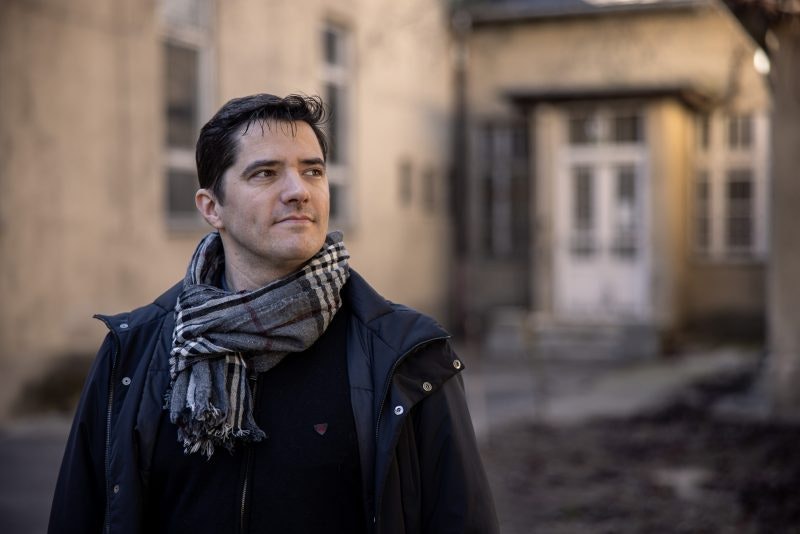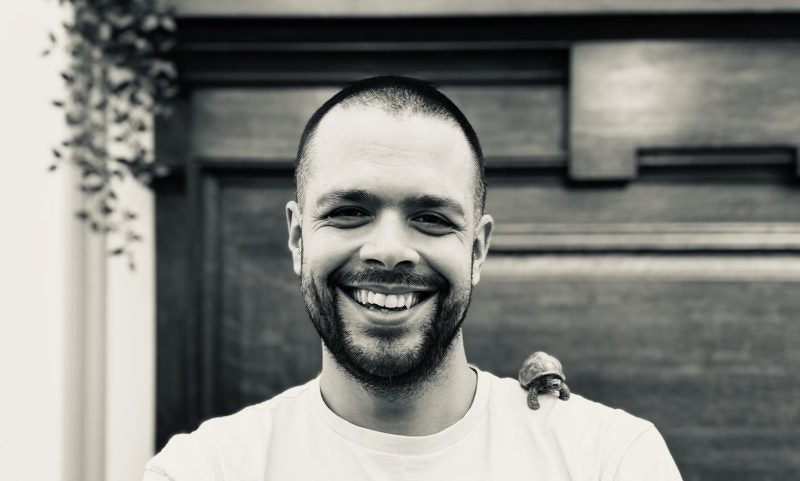In a fourth floor office at the Royal Aberdeen Infirmary, just down the corridor from a bustling breast cancer screening clinic, radiologist Dr Gerald Lip looked at a patient’s mammogram on his computer screen — part of a routine scan that all women between the ages of 50 and 71 are offered in the UK every three years.
It had already been checked by two doctors and given the all-clear. But software built by UK startup Kheiron Medical Technologies had flagged an area on the scan as potentially cancerous.
Lip called the patient back for further tests — and the software was right. Because the cancer was caught early the patient only needed a short course of radiology and minor surgery to remove the tumour.
Had Kheiron’s software not been used as part of a nine-month trial between February and October last year, the patient’s cancer would likely not have been found until the next routine scan three years down the line. “In that time the tumours could’ve doubled in size or spread to other parts of the body,” says Lip.
Kheiron is one of a growing number of startups beginning to deploy AI tools within the NHS, as the UK’s public healthcare system increasingly explores how tech can help tackle staff shortages and the pressures of treating a growing — and ageing — population.
But despite the promise of AI to catch things humans can miss, cut costs and free up medical professionals’ time, widespread adoption of AI in the NHS is still likely some way off.
The AI imaging ‘boom’
The NHS — like many healthcare systems around the world — has come under increasing pressure in recent times amid rising costs and staff shortages. Many industry watchers point to the potential of AI to lend a helping hand — and the UK government seems to have the same line of thinking.
Over the past few years, the NHS has been increasing its investment in AI. In 2019, the government announced it would invest £250m into a new NHS AI Lab to help tech companies develop and trial their tools in clinical settings.
The AI Lab has a series of support programmes for startups including those looking into AI for imaging, regulation and ethics, alongside an AI Award, which provides funding for the most promising. So far, it’s invested £123m into 86 technologies.
One of the areas that’s seen the most progress is AI imaging.
It was one of the first fields in healthcare that began to have AI applied to it, as part of a “boom” in what was possible with computer vision between 2013-2018, says Kheiron CEO and founder Peter Kecskemethy. In the US, 76% of all AI healthcare algorithms approved by its medical regulator, the FDA, are in the field of radiology.

Last month, Kheiron — which was the recipient of an undisclosed sum of AI Lab funds in 2021 and raised $22m from investors including Atomico and Hoxton Ventures in 2022 — released results from clinical trials which found that its AI breast cancer screening tool could sharply reduce the number of early-stage breast cancers missed by humans. Kheiron predicts that if the tech was rolled out across the NHS, it could help save 2000 lives a year.
It could also help ease the NHS’ staffing strain. It currently has a 29% shortfall in clinical radiologists, a figure that’s projected to rise to 40% in the next five years if nothing is done.
When a patient has a mammogram, two doctors ‘read’ the scan before deciding on whether the patient needs further checks or is given the all-clear. If they disagree, a third doctor weighs in.
Kheiron plans to use its tech to act as the second doctor when reading a scan. According to clinical research carried out by the startup, this could reduce the workload of clinicians by 30-45% — time that could then be spent dealing with patients face-to-face, says Kecskemethy.
It could also help save the NHS money. “If you catch cancers at an earlier stage, the costs for the NHS are much lower, because patients will need less chemotherapy,” says Lip, pointing to a recent report published in medical journal The Lancet which warned that the annual cost of breast cancer to the UK economy could rise by 40% to £3.6bn by 2034.
Following Kheiron’s successful clinical trials last year, it plans to roll out a pilot programme with its software acting as the second doctor across 16 hospitals in Scotland and England in June this year.
Other AI imaging startups have also made ground working with the NHS in recent times. Skin Analytics, another startup backed by Hoxton, is using computer vision to spot skin cancers and is live in 16 of the NHS’ 229 trusts — and plans to roll out in five more this year.
Brainomix, which has raised $35.3m from investors including Chinese multinational Tencent since being founded in 2010, is currently deploying its AI imaging tool to diagnose stroke victims at 90 UK NHS stroke centres. Early findings indicate that the treatment rate of stroke patients is 55% higher at hospitals using Brainomix’s tool than the national average.
‘Autonomous driving for doctors’
The advent of generative AI over the past couple of years has given rise to several companies hoping to use the tech to help save doctors time on admin.
In Europe, French startup Nabla picked up a $24m Series B at the start of the year to grow its GenAI-powered note-taking tool for medical professionals. Corti, which has built an AI note-taking and advice platform for doctors, raised a $60m Series B in September last year.
UK-based Cera, which has raised $303m in debt and equity and helps elderly patients and their carers manage at-home healthcare, is also rolling out a GenAI tool to help carers generate care plans. It works with the NHS in 300 local authorities and is among the first startups to deploy GenAI commercially within the health system.
Another is Tortus, which went live with its first commercial contract with London-based Great Ormond Street Hospital in February this year. The startup raised a $4.2m seed round from Khosla Ventures and Entrepreneur First the same month.
It’s building an AI copilot that takes notes during patient consultations. Clinical trials carried out by the startup have shown that the tool can allow doctors to spend 25% more time with patients, while documentation quality also doubles. According to one study, doctors spend more than a third of their day on paperwork. Further down the line, Tortus wants to automate doctor ‘actions’ — like ordering tests, prescriptions and scheduling appointments.
“AI in healthcare is the only realistic solution to the workforce problem we have,” says Tortus CEO and cofounder Dom Pimenta. “Clinical staff are wasting their time doing a lot of admin. You can imagine the cognitive load of [all that admin work]. Doctors are trying to see their patients while they’re driving their car — what if we could create autonomous driving for doctors.”

Startups also hope to make use of the huge amount of clinical — but often siloed and unstructured — data that the NHS collects from the many millions of patient-doctor appointments it conducts each year.
Part of the problem is that much of that data is text-based copy that a doctor types out during a patient appointment, which is hard to organise and use for clinical research on a macro-scale.
It’s a problem that CogStack, a consortium of researchers from several London-based university hospitals in the process of spinning out into a company, is looking to solve using AI models, based on natural language processing (NLP).
One use case was for a group of researchers analysing falls in elderly patients who were admitted to the hospital. Typically, a researcher would have to read a huge amount of doctor's notes and manually pick out the key pieces of data.
“This is a really difficult thing to analyse as a researcher, and a query could take months,” says CogStack cofounder and CEO Tom Searle. “CogStack applied NLP to the process, which extracted the findings in a second.”
Getting compliant
But despite the growing number of startups looking to deploy and trialling AI tools in the NHS, few have so far managed to secure commercial contracts with the organisation.
That’s partly down to how nascent clinical AI tools are and how long it takes to clinically validate and make sure new technology is compliant with NHS regulations.
While Kheiron was approved as a medical device in 2018, it’s still waiting to ink its first significant commercial deal with the organisation, which it hopes — following the pilot programme later this year — will come sometime in 2025. In that time it’s carried out two large trials, a clinical study and 16 service evaluations at individual NHS sites costing “millions”.
But that level of clinical validation is crucial in a sector like healthcare, says Kecskemethy. “If you make a single mistake, that could be a life. You can’t just have peak performance in the lab, you need to make sure that anywhere you install that software it has a very high performance.”
From launch in 2022 until the start of 2024, the majority of Tortus’ spend was on compliance, including making sure the tool adhered to GDPR laws, completed clinical research and documented risks as they came up in hazard logs, says Pimenta.
“We had to build evidence around not only what we thought was useful to demonstrate — like time in motion and quality of documentation — but also what Great Ormond Street Hospital were worried about, like bias,” he says.
Before signing a commercial deal with the hospital, Tortus conducted three phases of clinical trials. The first was in a sandbox, the second was with simulated patients and real doctors and the third was with real patients and doctors in a highly monitored environment.
But there are benefits to having such stringent regulations to meet, says Pimenta. “Once you’ve reached the threshold in the UK, I can ship [the product] anywhere safely. I know that it meets the Canadian, Australian and US guidelines because here it's so much more rigorous.”
The last mile problem
Negotiating deals with the NHS is also no straightforward task.
“The challenge we face is commissioning and adoption pathways aren’t in place — we call that a last mile problem,” says Sarah Kerruish, chief strategy officer at Kheiron.
Because the NHS is made up of hundreds of trusts — which often don’t manage their budgets — it can be difficult to find the right pathway to go down to get a commercial contract. In England, payments are managed by 42 integrated care systems (ICS) that oversee specific regions in the country — and if a technology is approved for payment in one, it doesn’t always mean it’ll be approved in another.
“The issue is the NHS structure,” says Kecskemethy. “Some new tech comes in, it produces some value in one part of the organisation, but it’s not recognised elsewhere where the payment would come from. That makes discussions complicated.”
It’s not a problem that’s unique to AI startups, says Greta Anderson, principal at VC firm Balderton.
“Healthtech startups have always faced tons of challenges selling into and scaling with the NHS,” she says. “It’s a behemoth organisation organised into opaque and complex structures. Within that, different parts of the NHS are extremely heterogeneous, with differing needs, and the IT architecture can be wildly varied.”

While Kheiron says it’s committed to making it work with the NHS, because of difficulties commercialising, some startups are taking their products to market further afield — particularly the US, Kecskemethy tells Sifted.
Kheiron has dipped its toes into the market across the Atlantic, too, and has recently signed a deal with a US healthcare provider (that it can’t name) to roll out its software in a pilot programme. Brainomix also announced it was expanding to the US in November last year.
But while generating cold hard cash from the NHS is still a way off for many startups, the UK is at least creating an environment that allows startups to test and develop their tech.
“There are many challenges when it comes to commercialising AI within the NHS, [but] the UK government has made huge contributions towards medical AI research, for instance with the UK Biobank [a large-scale database of patient data that the UK made available to researchers],” Anderson tells Sifted.
The UK is also looking to speed up the development of AI tools for the NHS. This month, the Medicines and Healthcare products Regulatory Agency (MHRA) is launching a regulatory sandbox, which will help startups generate evidence for their tech.
“We've found the NHS and UK a great place to innovate; the key question is what happens next,” says Kerruish. “Can the NHS make the shift to being a strong adopter of technology? We are hopeful that it can but what happens in the next few months and year is critical.”



